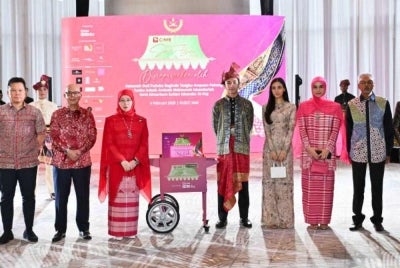Robust Parliamentary Services Act key to safeguarding Malaysia's democracy, says expert
Parliamentary and institutional development specialist Maha Balakrishnan said a strong PSA would protect the institution's integrity and autonomy.

SHAH ALAM - A robust Parliamentary Services Act (PSA) is crucial for safeguarding Malaysia's democracy, as it ensures the independence of Parliament from government influence.
Parliamentary and institutional development specialist Maha Balakrishnan said a strong PSA would protect the institution's integrity and autonomy.
She said for Parliament to serve as a true pillar of democracy, it must operate free from interference, not only in its legislative duties but also in its administration and financial management.
Therefore, she called for the urgent enactment of a PSA that delineated the boundaries between parliamentary operations and executive power.
Maha emphasised that the PSA should outline four fundamental components to ensure Parliament’s independence and effective functioning.
The first was the explicit transfer of administrative and financial control from the executive to Parliament itself which required the establishment of new management bodies within Parliament for these functions.
"The PSA must very clearly say that the control over the administration of Parliament, the control over finances of Parliament lies in Parliament with new management bodies set up under Parliament, not with the executive not with the government," she said she said during Sinar Daily's Top News Podcast recently.
Another key feature of the PSA, according to Maha, was the creation of a dedicated parliamentary service.
This would mean transitioning the existing parliamentary workforce from being public servants to staff employed directly under the new service.
She clarified concerns about public servants potentially losing their jobs, explaining that the change simply involved transitioning them from the public service to the parliamentary service.
More importantly, she said it ensured that every public servant was given a choice.
"Those currently working in Parliament can decide whether to join the new parliamentary service or remain in the public service, in which case they will be reassigned to a position within another government department," she said.
Maha, who is also a member of the All-Party Parliamentary Group Malaysia - Integrity, Governance and Anti-Corruption (APPGM-IGAC) stressed that this transition was about empowering Parliament’s workforce while maintaining their employment security.
In a related matter, to address concerns about the concentration of power within Parliament, Maha proposed a two-tier verification system.
She said this would involve a primary management body responsible for the day-to-day administration of Parliament, overseen by a secondary body such as a joint committee made up of members from the Dewan Rakyat and Dewan Negara.
"Think of it as a two-factor verification. It's about almost implementing a similar system within Parliament as well for the management bodies, a two-layer verification.
"One good method is to have perhaps another management body to check and review.
"Set up a management body, it can be a commission, it can be a council and they do most of the bulk work of administrating Parliament, day-to-day work, deciding on the policies of Parliament, then you have a second body and our suggestion is to set up a joint committee of Dewan Rakyat and Dewan Negara made up of MPs and senators from different parties to occasionally review the work of the commission," she suggested.
She said transparency was a critical element for fostering public trust.
While many government operations were shrouded in secrecy due to laws like the Official Secrets Act, she said Parliament operates under rules that already provide a degree of transparency.
The PSA, she said should build on this foundation by mandating the publication of documents related to parliamentary administration and finances.
"Ensure that all documents related to the administration and finances of Parliament are made transparent, published and tabled. This will be easier than it currently is because there are already rules in place in Parliament (to manage and oversee such documentation).
"Making these documents accessible to the public will not only ensure accountability but also reinforce the public’s trust in Parliament as an institution," she added.
Download Sinar Daily application.Click Here!















